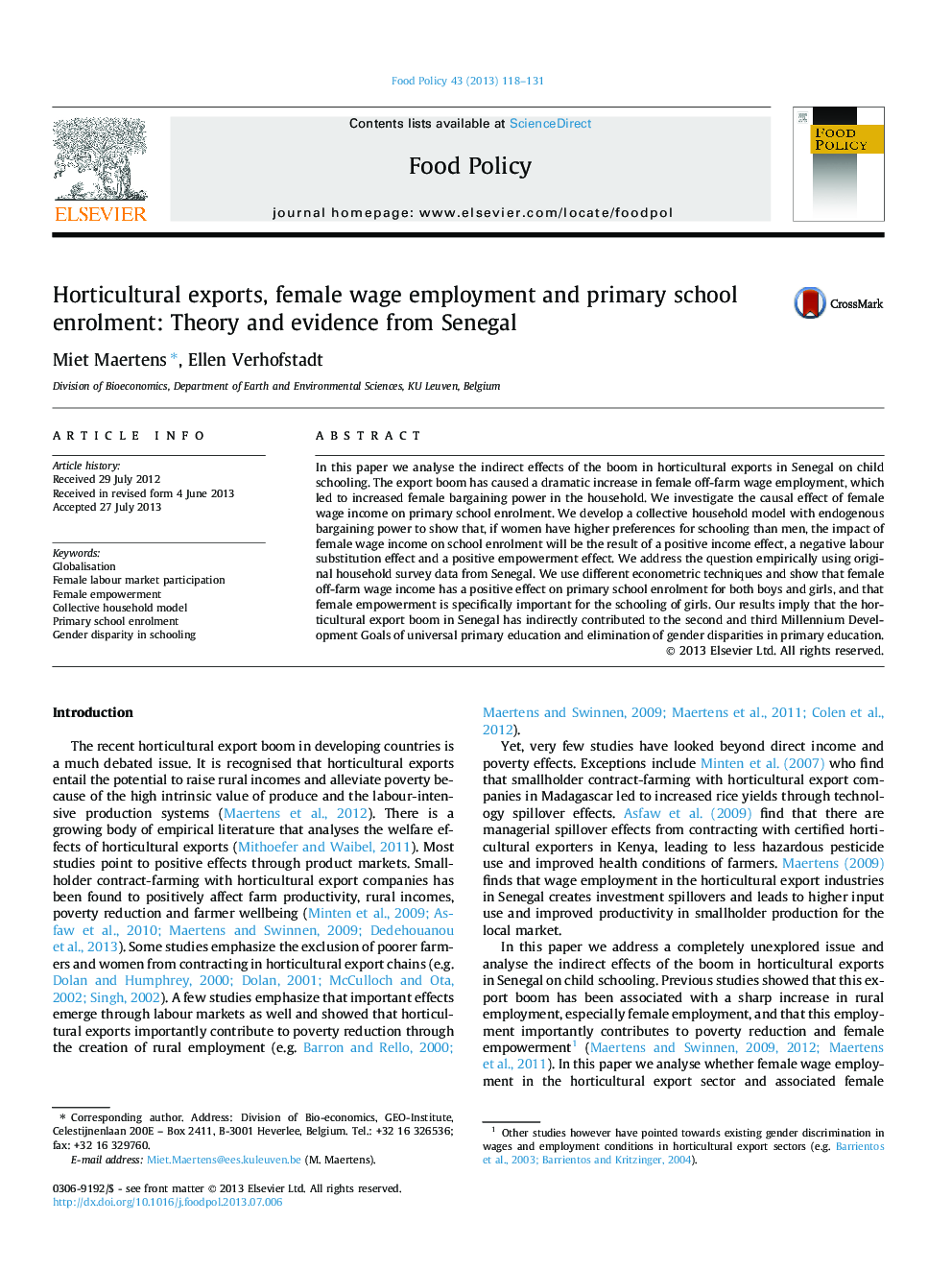| Article ID | Journal | Published Year | Pages | File Type |
|---|---|---|---|---|
| 5070594 | Food Policy | 2013 | 14 Pages |
Abstract
In this paper we analyse the indirect effects of the boom in horticultural exports in Senegal on child schooling. The export boom has caused a dramatic increase in female off-farm wage employment, which led to increased female bargaining power in the household. We investigate the causal effect of female wage income on primary school enrolment. We develop a collective household model with endogenous bargaining power to show that, if women have higher preferences for schooling than men, the impact of female wage income on school enrolment will be the result of a positive income effect, a negative labour substitution effect and a positive empowerment effect. We address the question empirically using original household survey data from Senegal. We use different econometric techniques and show that female off-farm wage income has a positive effect on primary school enrolment for both boys and girls, and that female empowerment is specifically important for the schooling of girls. Our results imply that the horticultural export boom in Senegal has indirectly contributed to the second and third Millennium Development Goals of universal primary education and elimination of gender disparities in primary education.
Keywords
Related Topics
Life Sciences
Agricultural and Biological Sciences
Food Science
Authors
Miet Maertens, Ellen Verhofstadt,
